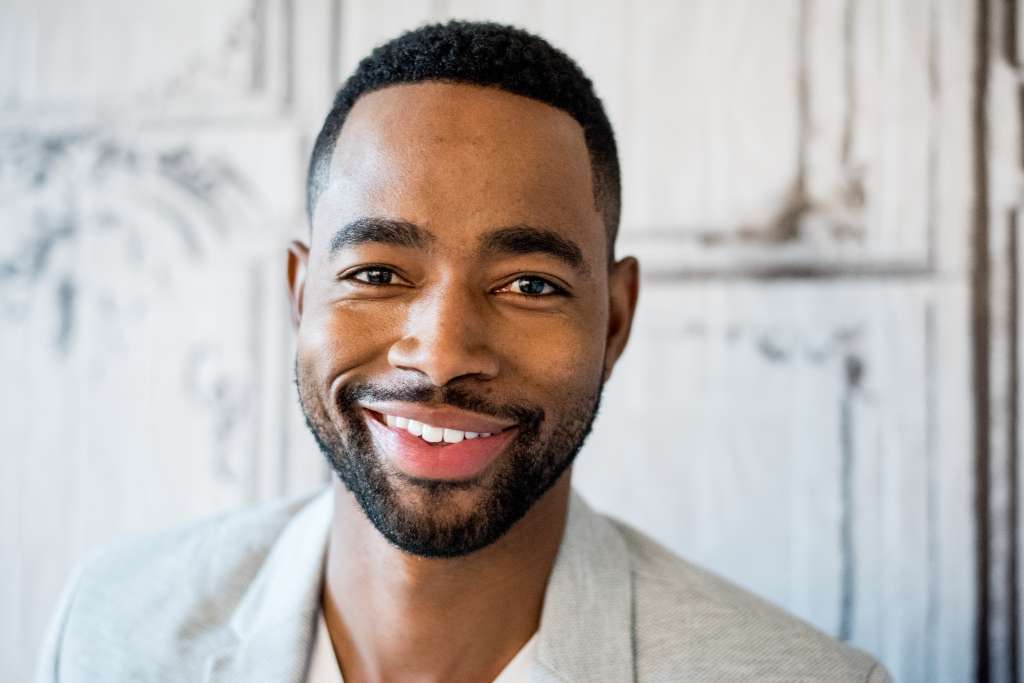
Source: Roy Rochlin / Getty
Like Cotton Twines, a new film premiering today on Urban Movie Channel (UMC), tells the harrowing story of Tuigi (Ophelia Dzidzornu), a young girl who is forced into slavery as a consequence of her father’s crime.
When Tuigi gets sentenced to 10 years of servitude under the ritual of Trokosi — a traditional religious practice found in parts of Ghana, Benin, and Togo — all hope seems lost. But when Micah Brown (Jay Ellis of HBO’s Insecure) catches wind of her fate, he does all in his power to save Tuigi from Trokosi’s confines.
We chatted with Ellis via phone about his role in the film and his plans for 2017. Here, he discusses the importance of fighting for freedom, exercising humanity, and even briefly reflects on Insecure‘s stirring Season 1 finale.
TUD: Tell us about your role in the film. How did the opportunity come about?
JAY ELLIS: Leila Djansi – she’s the director of the film – reached out to my agent and said “Hey, I’d love to work with him. Will you read this?” And my agent gave it a read and sent it over to me and said “Hey, this is really cool . . . You’ll possibly shoot in Ghana. You wanna take a look at it?” So I said “Sure!”
I read it that night and the next day called him and said, “Yeah! I’d love to meet her. Let’s talk about it.” Leila and I sat down and we met at a little coffee spot and sat and talked and neither one of us ordered coffee [laughs]. We talked about the movie, talked about the film and her experience writing it, her experience being Ghanaian and then coming to America but going back to Ghana quite often and working in Ghana, the experience of these young girls, Trokosi, and then also the experience of what it would be like to go to Africa for the first time and to be this teacher in this small village and then something like this happens. We had this great conversation that lasted two hours, three hours maybe, and she was actually on a flight to go to Ghana that night to start prep.
Wow.
Yeah, and it just worked out. About three weeks later, a month later, everything got worked out and I was on a flight to Ghana.
What was it about the script that made you feel like, “Wow. I have to play this role”?
It wasn’t so much about playing the role as it was telling the story. I feel like the story of Tuigi was so much more of an important story than anything else. I think this film is Tuigi’s film. I think this is really about her story, and not just her story, but her story in a larger context for all these young girls and women who have been kidnapped or sold or forced into some kind of slavery or servitude and don’t get the opportunity to have their voice heard. I think that’s what drew me to it.
When that Boko Haram thing happened a few years back and all those girls were kidnapped, the hashtag ran and people posted about it and people talked about it, but what can we do? What do we do? We’re so far away and we’re not connected to it and it doesn’t hit home because it’s not one of ours – cousins, sisters, or mothers – so what do we do? I think, for me, doing this project was one of those things of like, “Well this is what I can do. This is part of what I can do with my chosen profession.”
One thing that really struck me on an emotional level was the bond that Micah had with Tuigi, the level of concern that he expressed for her. It felt very organic on-screen. How much were you able to relate to Micah?
In some ways, a lot! It was my first time in Ghana. It was my first time experiencing all these things. There’s a few scenes that didn’t make the movie that show a little more of him exploring and him experiencing all the different things that the culture has to offer — from food and markets and church and all these different things that he experiences — and all those were my first time as well. That was my first time in a bus with a goat sitting on it, which wasn’t a made up thing. Like, we saw those driving by when we were there, so in some ways it was easy to relate to Micah in that space, and then in other ways it wasn’t.
I don’t know what it’s like to lose my mother. My mom is still here. My mom was with me in Ghana for half of the film. I don’t know what it’s like to be a teacher in a foreign place where all of a sudden your hands are tied and there’s nothing that you can do to stop an injustice. I think that is where my work kind of was. How do I get in there and figure those things out? How do I tap into Micah’s brain in those moments? And I think the affection, if you will, for Tuigi — I think it’s just pure humanity. I think if you’re a human and you’ve experienced love before, then you just care about other people and you don’t want anything bad to happen. Ophelia, the actress that played Tuigi, made that easy because she was just so lovable. I feel like she was kind of my little sister that I never had, and she did such a phenomenal performance that working with her just made it so easy to just tap into that.
Absolutely. Obviously the topic of the film is quite harrowing. We know that modern-day slavery exists, but seeing it portrayed in a film is a whole different ball game. Were there any particular scenes that were more difficult than others to film?
The hardest thing for me was at the slave castle where Sara takes Micah to the dungeon and she’s kind of showing him where it started. To me, that was the toughest part, because our relationship here in America with slavery is through text. There’s some pictures and there’s been documentaries and obviously there’s been a few films that have come out, but for the most part our relationship is so removed. It’s not tangible.
And when you walk into that room and you see how cramped and tiny this room is, and you see the chains that are cemented into the floor that have been there for two centuries going on three centuries, and you see these tiny 8×8 barred windows that look on to this prestige beach and this beautiful ocean, and you realize that your ancestors were in these rooms, separated from their families and their loved ones and then put on these boats, and if they were fortunate enough to make it across they were basically thrown into one of the probably worst forms of torture there is known to man in slavery — that to me was really, really hard. Just being in that space was really, really tough, because you would immediately feel the weight of what slavery actually is and what it meant and it was one of those things where you also walk away and you go, “How can a human do that to another human?”
What do you want viewers to walk away with after seeing this film?
A couple different things. These stories are still happening. These issues are still happening, and sometimes we lose sight of that because there’s so many headlines and hashtags and the information cycle is so heavy. Obviously this world is not short of any issues or problems, but freedom is one of the basic things that we should all be fighting for at all times and we should all be speaking up for, so I hope it gets people wanting to be involved and have a voice or care, because it’s happening all around the world. It’s not just Ghana. It’s still in Asia and India and South America quite a bit, so that’s one thing for sure.
I think the second thing is just compassion and love for each other as humans, because I think that’s ultimately what Micah has that makes him stand up and do this. Even though he’s getting told “no” at every turn, he still is pushing and fighting because of his compassion and his humanity. And her humanity.
Which is such a crucial message. What else can we expect from Jay Ellis in 2017?
Hopefully some more good work! [Laughs] I’ll go back to Insecure pretty soon. We actually start production pretty soon, and then after that it’s about finding some more really great movie roles, some things where I get to kind of expand my box as an artist a little bit and tell a different story and kind of open people’s eyes to different things — whether it’s fun, whether it’s drama, whether it’s somewhere in the middle, whether it’s horror, whether its thriller, whether it’s action, whatever. I wanna continue to find things that just make people think about the Black male in this country in a different way.
That’s so important, and I think I speak for many people when I say we’re definitely looking forward to seeing what you do next. Before I let you go, though, I have to ask: Are you team Issa or team Lawrence after that Season 1 finale?
[Laughs] I’m not gon’ lie. I’m team Lawrence. Now I don’t know if I would’ve done what Lawrence did, but I’m definitely team Lawrence. I think that it’s a sticky situation, man. It’s ugly and it’s sticky and it’s real life, and I think that’s what’s so great about it.
I think it’s great Issa and Lawrence’s relationship and Molly’s relationship has just brought up so much conversation – just authentic, real conversation about what it is to be dating right now and to be in love and all these different things. But I find myself gravitating towards Lawrence.
<p>Facebook Live Is Loading....</p>




